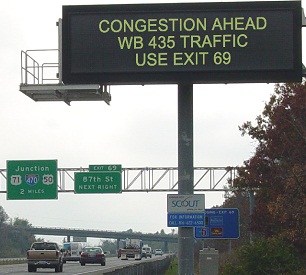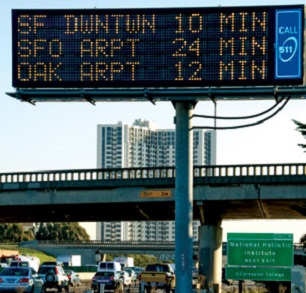Houston Radar DR600 and SS400 radars feature a ‘True Average Speed’ calculation and output. Existing radars in the field may be updated to support this feature via a simple firmware update. The radar internally calculates and periodically updates a vehicle count weighted average traffic speed on the road over a user-determined time period taking into account all incoming lanes of traffic and speeds of all vehicles.
Additionally, it also accumulates real-time traffic volume binned by speed in 1mph or 1kph bin widths.
This feature provides sub-mph/kph accurate speed information as the vehicle speeds are measured by a direct Doppler shift rather than inferred indirectly. Additionally, setup and deployment are extremely easy, with the radar simply pointed up-stream into traffic without any accurate sighting or extensive field setup requirements.
In many situations where lane-by-lane traffic counts and occupancy are not required this provides a great alternative to side-firing radars at significantly lower price points (<5x the cost), power usage (<20x the power usage) and ease of setup.
Our customers are successfully using this feature for “Slow traffic ahead” and “Travel time to destination” applications.
True Average Speed features
- Calculates ‘Real Time’ vehicle count weighted average speed on the road in mph or kph
- Excellent average speed accuracy due to direct speed measurement. Typically better than 1mph or kph.
- Fractional speed output available.
- Average speed updated on user specified intervals from 5 seconds to 60 minutes.
- ‘Real Time’ vehicle counts by speed histogram available in user specified bin-widths as fine as 1mph/kph
- No-hassle installation. Simply point upstream. No calibration required on the road.
- Very low cost. Included as part of our In-Radar Advanced traffic statistics feature.
- Retrieve speed remotely via external cellular modem. Native TCP/IP (Internet) network connectivity in supplied Windows host program.
For more information please download the pdf document by clicking on the ‘Download PDF’ button above.



